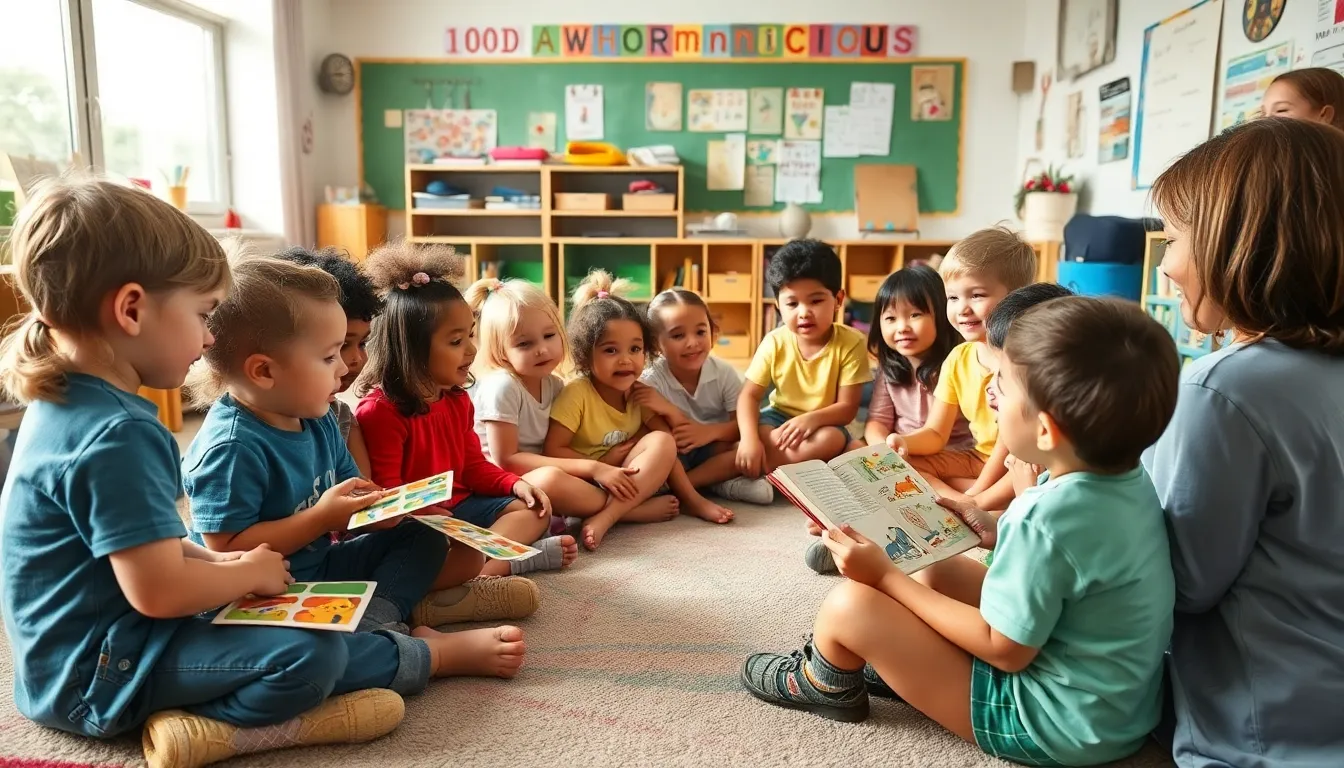Table of Contents
ToggleIn a world buzzing with distractions, reading often takes a backseat. Yet, developing strong reading skills can unlock doors to new worlds, ideas, and opportunities. Imagine diving into a gripping novel or acing that important report at work—all thanks to your newfound reading prowess. It’s not just about deciphering words; it’s about transforming them into a thrilling adventure.
Importance of Developing Reading Skills
Reading skills are crucial for effective communication and comprehension. Enhanced reading abilities lead to better understanding of complex texts, which is vital in both personal and professional settings. A strong reader can quickly analyze information, allowing for informed decision-making and problem-solving.
Cultivating reading skills also promotes critical thinking. Readers learn to evaluate different viewpoints and recognize underlying arguments. This skill becomes essential when navigating diverse perspectives in discussions or debates.
Furthermore, proficient reading abilities boost academic performance. Studies show that students with advanced reading skills tend to excel across various subjects. Improved literacy contributes to higher grades and greater academic achievement.
Engagement with literature enriches empathy and social awareness. Characters and scenarios in stories provide insights into different cultures and experiences. This exposure foster understanding and compassion in real-life situations.
Additionally, reading stimulates cognitive development. Regular reading enhances vocabulary and language skills, equipping individuals with a broader range of communication tools. Vocabulary expansion directly influences writing proficiency and articulacy.
Reading for pleasure cultivates lifelong habits. Enjoyable reading experiences can foster a love for literature, encouraging individuals to seek out books throughout their lives. A consistent reading practice transforms reading from a chore into a rewarding and enriching activity.
Employing reading strategies can further enhance these benefits. Techniques such as skimming, scanning, and summarizing aid in mastering different reading materials. Implementing these strategies leads to more efficient reading habits and increased retention of information.
Strategies to Develop Reading Skills

Developing reading skills involves implementing specific strategies. These techniques can enhance understanding and foster a love for reading.
Phonemic Awareness
Phonemic awareness refers to the ability to recognize and manipulate individual sounds in spoken words. This skill forms the foundation for reading by allowing children to decode words. Engaging in activities like rhyming games and sound matching can significantly improve phonemic awareness. Listening to stories read aloud also strengthens this skill, as it helps learners identify sounds and syllables in context. Regular practice through these methods contributes to a child’s reading progression and overall literacy development.
Vocabulary Development
Vocabulary development plays a crucial role in reading comprehension. Exposure to a rich variety of words enhances understanding and communication skills. Reading diverse texts, including fiction and non-fiction, introduces new vocabulary in different contexts. Incorporating word games and flashcards can also aid in reinforcing new terms. Discussing the meanings of unfamiliar words during reading fosters deeper comprehension. Frequent reading and conversation about texts solidify vocabulary, paving the way for stronger reading abilities.
Techniques for Practicing Reading Skills
Effective practice techniques can significantly enhance reading skills, making the process engaging and beneficial.
Guided Reading Sessions
Guided reading sessions provide focused instruction, allowing small groups to read texts appropriate for their levels. Instructors can tailor lessons based on individual needs, promoting comprehension. Readers explore vocabulary in context, ensuring deeper understanding. Using questions during the reading process encourages critical thinking, enhancing engagement. These sessions create an interactive learning environment, fostering collaboration and discussion among peers. As a result, students develop not just fluency, but also confidence in their reading abilities.
Independent Reading Practices
Independent reading practices empower learners to choose texts that interest them, cultivating a love for reading. Allowing time for self-selected reading activities can enhance enjoyment and motivate continued engagement. Setting reading goals encourages accountability, enabling readers to track progress. Consistent reading routines facilitate skill improvement, making it easier to develop fluency and comprehension. Using bookmarks and journals can help readers reflect on their thoughts and ideas, reinforcing retention. Engaging with diverse material expands vocabulary and nurtures critical analysis of different genres.
Assessing Reading Skill Progress
Measuring progress in reading skills is essential for understanding a learner’s development. Teachers can use formal assessments like standardized tests to evaluate comprehension levels and fluency rates. These tools provide clear data on specific skill areas, including vocabulary acquisition and reading speed.
Regular observations during guided reading sessions offer insights into areas needing improvement. Educators should note students’ engagement with texts, their ability to answer questions, and their participation in discussions. Informal check-ins, such as one-on-one conversations, can also help gauge understanding and comfort with various genres.
Utilizing reading logs encourages students to track their reading habits. Logs can capture the titles read, time spent reading, and reflections on content. This practice promotes self-awareness about reading choices and interests while helping teachers identify trends.
Incorporating portfolio assessments allows students to showcase their reading journey over time. Portfolios can include guided reading notes, written responses to texts, or projects related to reading activities. They provide a comprehensive view of a learner’s progress and areas for future growth.
Peer assessments foster collaborative learning. Students can evaluate each other’s reading skills through structured activities. This interaction encourages constructive feedback and motivates learners to improve.
Finally, regular meetings with parents strengthen home-school connections. Sharing assessments and reading logs with families builds support strategies for students. Establishing this partnership can be instrumental in accelerating reading skill development.
Developing strong reading skills is essential in today’s fast-paced world. It not only enhances personal enjoyment but also opens doors to professional opportunities. By fostering a love for reading and employing effective strategies, individuals can improve their comprehension and critical thinking abilities.
Regular practice and assessment play a crucial role in this journey. Whether through guided sessions or independent reading, consistent engagement with diverse materials nurtures a well-rounded reader. As individuals cultivate these skills, they not only boost their academic performance but also enrich their understanding of the world around them. Embracing reading as a lifelong habit ultimately transforms lives, making it an invaluable pursuit.




